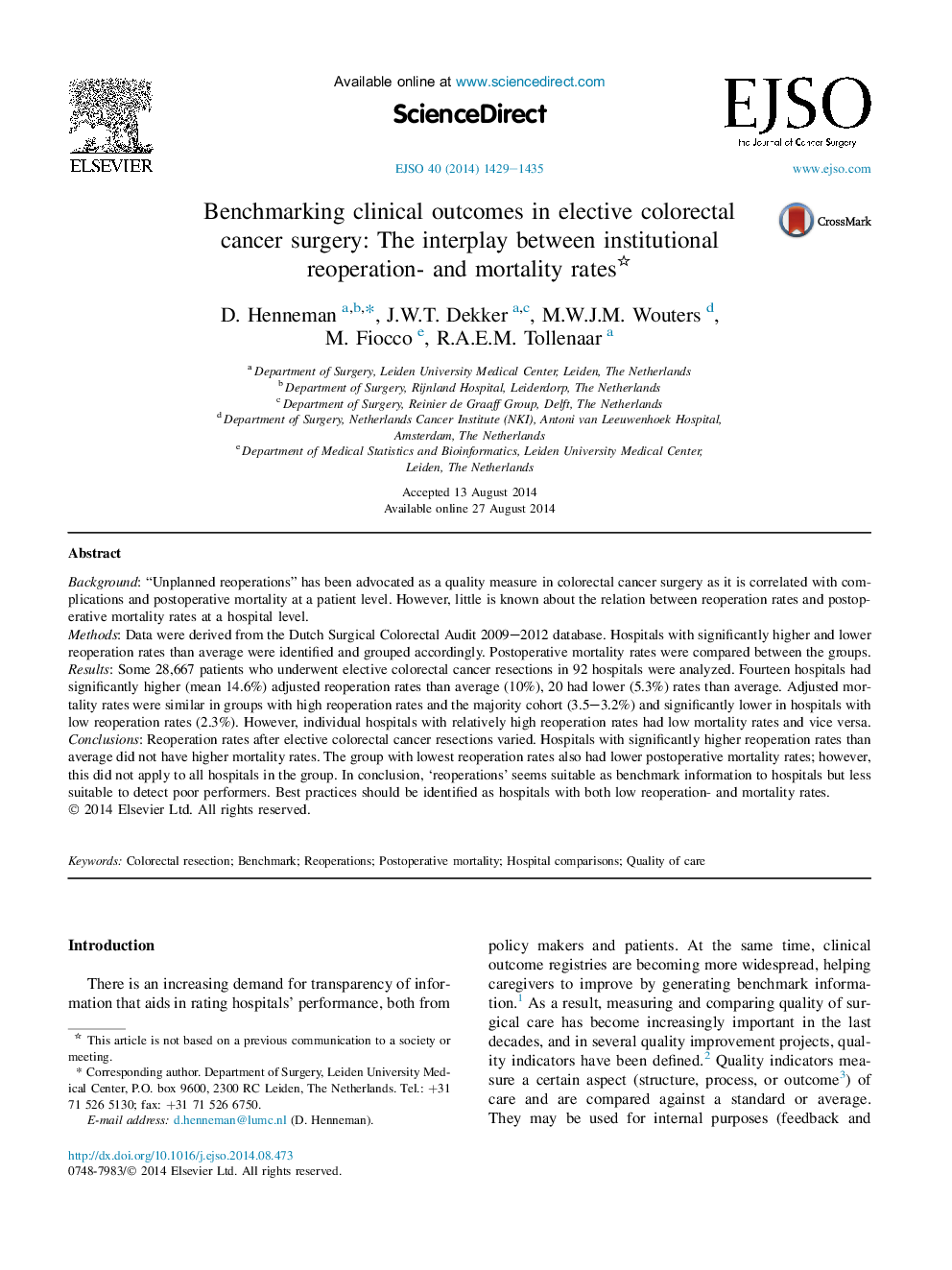| Article ID | Journal | Published Year | Pages | File Type |
|---|---|---|---|---|
| 3984984 | European Journal of Surgical Oncology (EJSO) | 2014 | 7 Pages |
Background“Unplanned reoperations” has been advocated as a quality measure in colorectal cancer surgery as it is correlated with complications and postoperative mortality at a patient level. However, little is known about the relation between reoperation rates and postoperative mortality rates at a hospital level.MethodsData were derived from the Dutch Surgical Colorectal Audit 2009–2012 database. Hospitals with significantly higher and lower reoperation rates than average were identified and grouped accordingly. Postoperative mortality rates were compared between the groups.ResultsSome 28,667 patients who underwent elective colorectal cancer resections in 92 hospitals were analyzed. Fourteen hospitals had significantly higher (mean 14.6%) adjusted reoperation rates than average (10%), 20 had lower (5.3%) rates than average. Adjusted mortality rates were similar in groups with high reoperation rates and the majority cohort (3.5–3.2%) and significantly lower in hospitals with low reoperation rates (2.3%). However, individual hospitals with relatively high reoperation rates had low mortality rates and vice versa.ConclusionsReoperation rates after elective colorectal cancer resections varied. Hospitals with significantly higher reoperation rates than average did not have higher mortality rates. The group with lowest reoperation rates also had lower postoperative mortality rates; however, this did not apply to all hospitals in the group. In conclusion, ‘reoperations’ seems suitable as benchmark information to hospitals but less suitable to detect poor performers. Best practices should be identified as hospitals with both low reoperation- and mortality rates.
